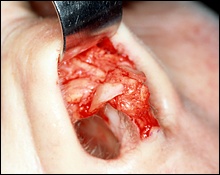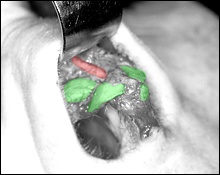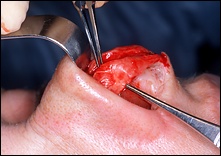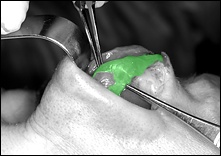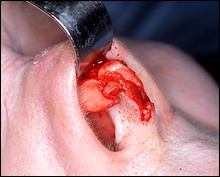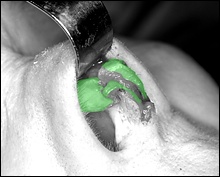 Now that we've seen
some of the worst, let me point out that no rhinoplasty operation goes
perfectly, even in the very best of hands. None of 'em. Every nose
has a surprise inside that makes the operation difficult, that requires some
form of compromise. Every nose has some
aspect of the result with which the surgeon isn't
completely happy. The world's best rhinoplasty surgeons have to revise
noses they operated on.
Now that we've seen
some of the worst, let me point out that no rhinoplasty operation goes
perfectly, even in the very best of hands. None of 'em. Every nose
has a surprise inside that makes the operation difficult, that requires some
form of compromise. Every nose has some
aspect of the result with which the surgeon isn't
completely happy. The world's best rhinoplasty surgeons have to revise
noses they operated on.
The difference is
that a good rhinoplasty surgeon won't make a mistake as in the photos
above. Complications and unexpected results happen to great surgeons and
awful surgeons, but great surgeons will have far fewer complications, and when
they do occur they will be much milder. Poor surgeons will rarely have
even an acceptable result.
Generally, if a
competent surgeon and his patient aren't happy with the results of surgery, it's
because the patient received less improvement than she and the surgeon were
hoping for. Often a revision operation can be performed to make things
better, but not always. Some noses just won't let you get all of the
improvement you wanted.
|













